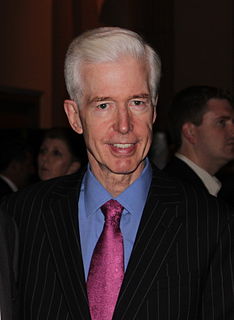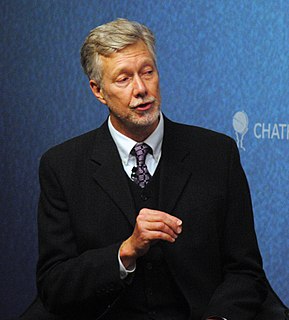A Quote by Luis Gutierrez
According to the study, approximately 16.7 million U.S. workers born in Latin America had a combined gross income of $450 billion last year, of which 93 percent was spent locally.
Related Quotes
During the fiscal year ending in 1861, expenses of the federal government had been $67 million. After the first year of armed conflict they were $475 million and, by 1865, had risen to one billion, three-hundred million dollars. On the income side of the ledger, taxes covered only about eleven per cent of that figure. By the end of the war, the deficit had risen to $2.61 billion. That money had to come from somewhere.
Is it just a coincidence that as the portion of our income spent on food has declined, spending on health care has soared? In 1960 Americans spent 17.5 percent of their income on food and 5.2 percent of national income on health care. Since then, those numbers have flipped: Spending on food has fallen to 9.9 percent, while spending on heath care has climbed to 16 percent of national income. I have to think that by spending a little more on healthier food we could reduce the amount we have to spend on heath care.
In 2013 Citigroup had profits of $6.4 billion in the United States. They paid no federal income tax and, in fact, received a rebate from the IRS of $260 million. That same year J.P. Morgan had $17.2 billion in profits in the U.S. They also paid no federal income tax. Do you think it's time for tax reform?
I supported the Korean Trade Agreement in 2011. They promised - when it was signed, President [Barak] Obama said it would increase our exports to Korea by $10 billion a year.That creates jobs in America.Since - last year, 2015, there was no increase, like instead of billions of dollars there was like a $100 million increase in our exports to Korea, whereas as their imports to us went up $12 billion, and our trade deficit increased 240 percent.
Forests are breaking out all over America. New England has more forests since the Civil War. In 1880, New York State was only 25 percent forested. Today it is more than 66 percent. In 1850, Vermont was only 35 percent forested. Now it's 76 percent forested and rising. In the south, more land is covered by forest than at any time in the last century. In 1936 a study found that 80 percent of piedmont Georgia was without trees. Today nearly 70 percent of the state is forested. In the last decade alone, America has added more than 10 million acres of forestland.
This is not some alarmist Orwellian scenario; it is here, now, financed by $20 billion last year and $15 billion more this year of federal money appropriated out of sheer fear. By creating the means to monitor 300 million visits to the United States yearly, this administration and a supine opposition are building a system capable of identifying, tracking and spying on 300 million Americans.
Yes, twenty-seven million in slavery is a lot of people, but it is just .0043 percent of the world's population. Yes, $23 billion a year in slave-made products as services is a lot of money but it is exactly what Americans spent on Valentine's Day in 2005. If humans trafficking generates $32 billion in profits annually, that is still a tiny drop in the ocean of the world economy.
In 2010, you have roughly 38 billion dollars spent by government on cyber and telecoms security and another 60 billion or so by private corporations. So approximately 100 billion dollars spent on security, mostly on technological solutions, which the corporates are offering governments in particular; it's a very high growth area. So everyone is climbing over each other to get the contracts for government procurement on this. There is undoubtedly an element of this and that's what encourages, in part, the whole idea of locking down the Internet.
I know Teddy Kennedy had fun at the Democratic convention when he said that I said that trees and vegetation caused 80 percent of the air pollution in this country. ... Well, now he was a little wrong about what I said. I didn't say 80 percent. I said 92 percent-93 percent, pardon me. And I didn't say air pollution, I said oxides of nitrogen. Growing and decaying vegetation in this land are responsible for 93 percent of the oxides of nitrogen. ... If we are totally successful and can eliminate all the manmade oxides of nitrogen, we'll still have 93 percent as much as we have in the air today.
































